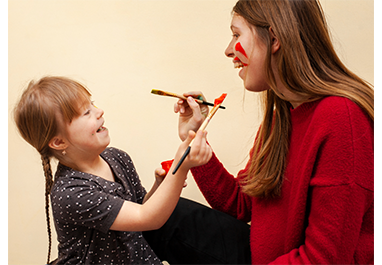Boardline - 022-69318000 / 69301000 | Casualty - 022-69318063 / 64 / +91 86579 07754 | Ambulance - +91 97692 50010 / 75063 58779
Understanding Down syndrome in India, including diagnostic methods, treatment options, and the evolving landscape of awareness and support.
Down syndrome, a genetic condition arising from an extra copy of chromosome 21, impacts developmental and physical health. While individuals typically have 46 chromosomes, those with Down syndrome possess 47. Early detection and intervention are vital for enhancing the quality of life for those affected. In India, despite evolving awareness, stigma and misconceptions persist, posing challenges for families. Dr. Deepak Ugra, Pediatrician at Lilavati Hospital, highlights the emotional impact of a Down syndrome diagnosis, emphasizing that it defines only one aspect of an individual.
He stresses the importance of early intervention, including speech and occupational therapy, and educational programs tailored to meet unique needs. Diagnosing Down syndrome involves prenatal tests like nuchal translucency screening and cell-free fetal DNA testing, as well as physical exams and genetic testing. A multidisciplinary approach is crucial for accurate assessment and care planning, ensuring individuals reach their full potential.

Treatment options focus on improving quality of life through early intervention programs and medical interventions. Speech and occupational therapy aid in skill development, while surgeries and medications address associated health conditions. In India, although challenges remain regarding awareness and acceptance, a growing movement promotes inclusivity. Organizations and support groups advocate for the rights of individuals with Down syndrome, working to dismantle barriers and ensure access to healthcare, education, and employment. Enhanced community support and awareness are crucial for enabling individuals with Down syndrome to live fulfilling lives and feel valued.
_i07w.jpg)
Following these basic principles can help you make the most of the festive season while not compromising your health and skin.
Dr. Anjula Mahajan at Lilavati Hospital